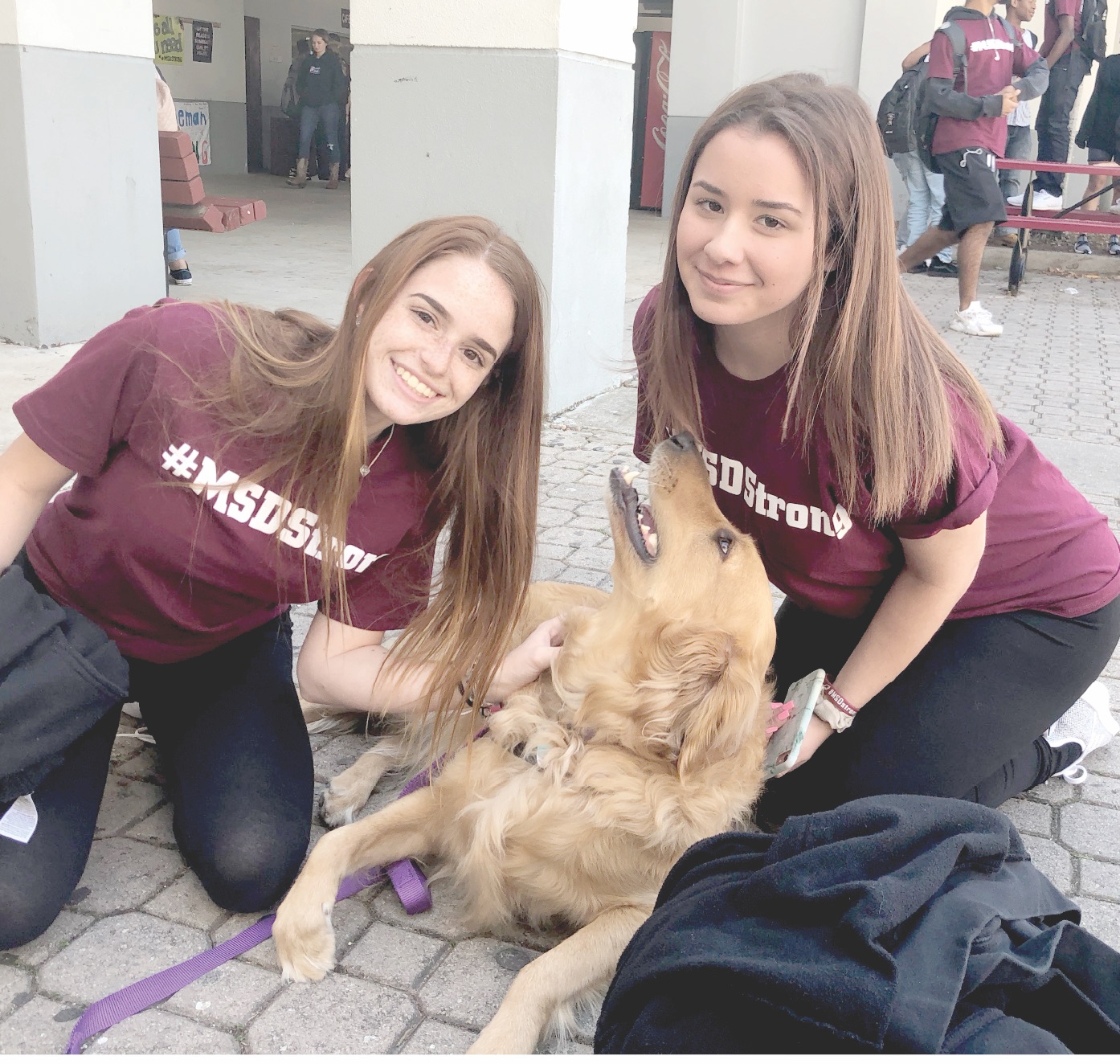
When an armed gunman came onto her campus last month and began shooting, Marjory Stoneman Douglas High School junior Hayley Licata didn’t know what to do.
Speaking in front of students on March 23 at Shalhevet High School, the 16-year-old said, “I was in disbelief and my body just froze.”
Eventually, Licata ran home, but she couldn’t eat or sleep that night. Social media kept reminding her of the tragedy, so she put away her phone. But a text came through telling her that her friend Nicholas Dworet had died.
“I felt guilty for walking out of that school in one piece,” Licata said. It was a story she would repeat later that day at similar assemblies at de Toledo High School and Milken Community Schools.
Licata’s visit and appearance, together with her classmate Mia Freeman, 17, were arranged by Stephen Wise Temple Senior Rabbi Yoshi Zweiback and Rabbi Melissa Zalkin Stollman, director of lifelong learning at Congregation Kol Tikvah, the largest Reform congregation in Parkland, Fla., where Marjory Stoneman Douglas High is located. They also flew out Licata’s mother, Caren.
Licata and Freeman also took part in the downtown Los Angeles March for Our Lives rally the following day, one of 800 such demonstrations that took place across the country and around the world.
The Feb. 14 shooting claimed the lives of 17 people while sparking a nationwide movement for reforming gun laws, led by student activists.
In the days following the attack, Licata said she went to as many funerals of the shooting victims as she could. She found comfort playing Uno with friends and in petting comfort dogs brought to the school.
Wearing a sweatshirt that read “Douglas Strong,” Licata told Shalhevet students, “This may not be normal, but it’s our normal.”
For Licata’s mother, Caren, that “normal” is something she wishes her child didn’t have to adapt to. She fears her daughter will forever be identified with the school massacre.
“I don’t want that for my child,” Caren said, tears welling in her eyes. “I want her to go to school and be one of the many, not, ‘Oh, you’re from Parkland.’ ”
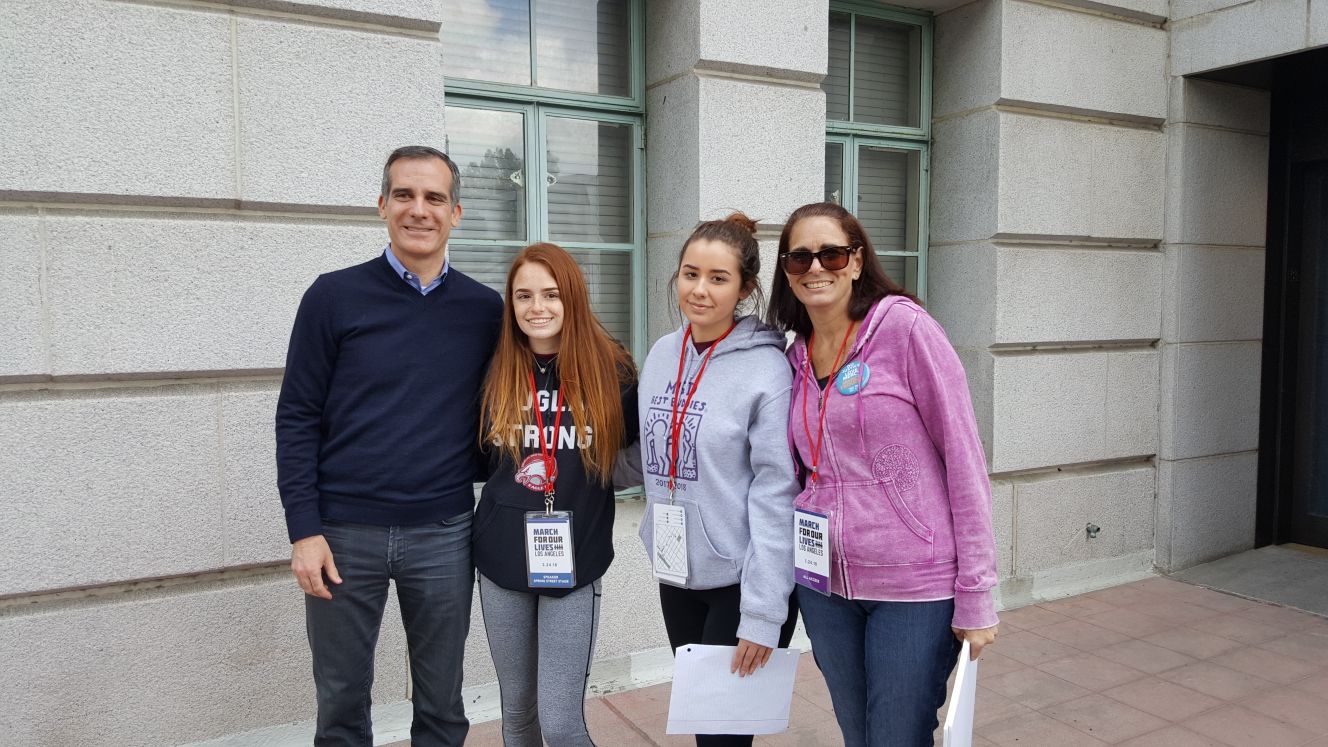
Nonetheless, Licata and Freeman spoke openly about their experiences and took questions from students regarding how they felt about arming teachers and how they have handled being the center of media attention in the wake of the shooting.
“As horrible and unspeakable and tragic as the shooting was, it has freed a movement.” — Hayley Licata
“I don’t agree with arming teachers,” Freeman said. “I don’t think the teachers should have to worry about being armed.”
Licata said the media attention has not been easy. “I would turn away every camera that came into my face.”
However, she acknowledged how the aftermath of the shooting and the intense media scrutiny have created something powerful. Connecting the nationwide response to the tragedy to the Passover story, Licata said, “Passover represents when God freed the Jews from slavery in Egypt. As horrible and unspeakable and tragic as the shooting was, it has freed a movement.”
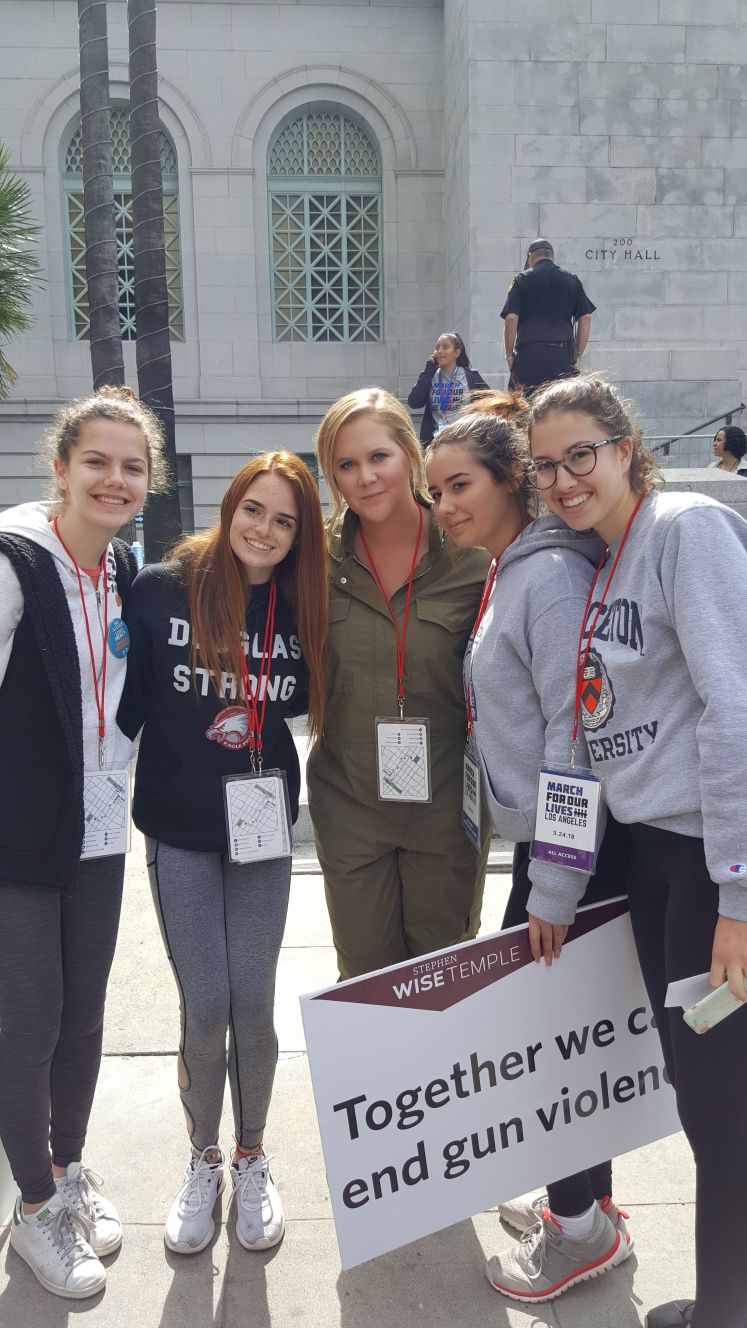
Following the assembly, Shalhevet senior Maia Zelkha told the Journal, “I think they’re really brave and have a lot of courage for sharing what they went through. To go up there and speak about it and relive it is traumatic in its own way.”
Licata and Freeman then visited de Toledo and Milken before rushing to CNN’s Los Angeles studio on Sunset Boulevard for an interview. Afterward, they came into the green room and had a few minutes to eat In-N-Out burgers before doing radio interviews over the telephone.
They had their largest audience at the March for Our Lives rally in downtown L.A. Mayor Eric Garcetti joined the girls onstage as they delivered abridged versions of the remarks they had given at the schools.
Zweiback praised Licata and Freeman, saying they were engaging in a Jewish act of remembrance by sharing their stories.
“That feels very Jewish to me,” he said. “Bearing witness and remembering is core to how we make sense of what happens to us in this world.”







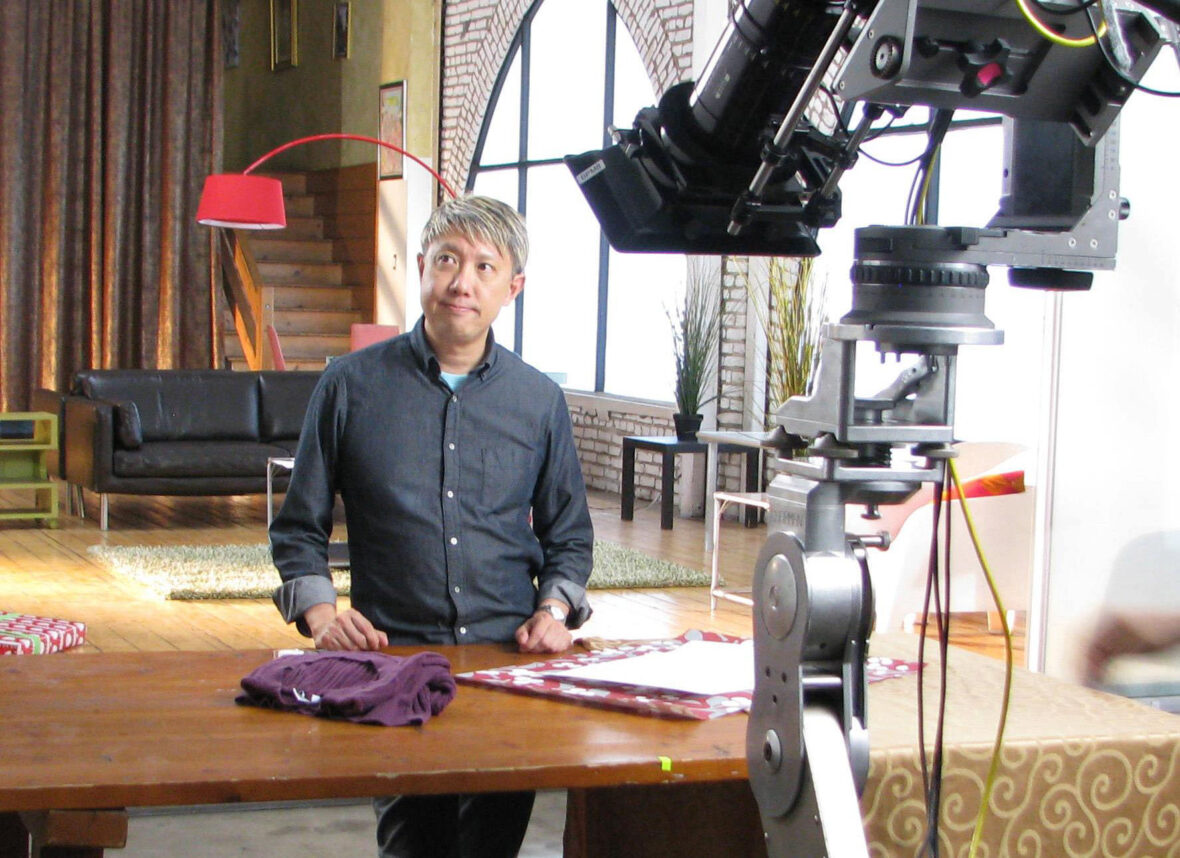
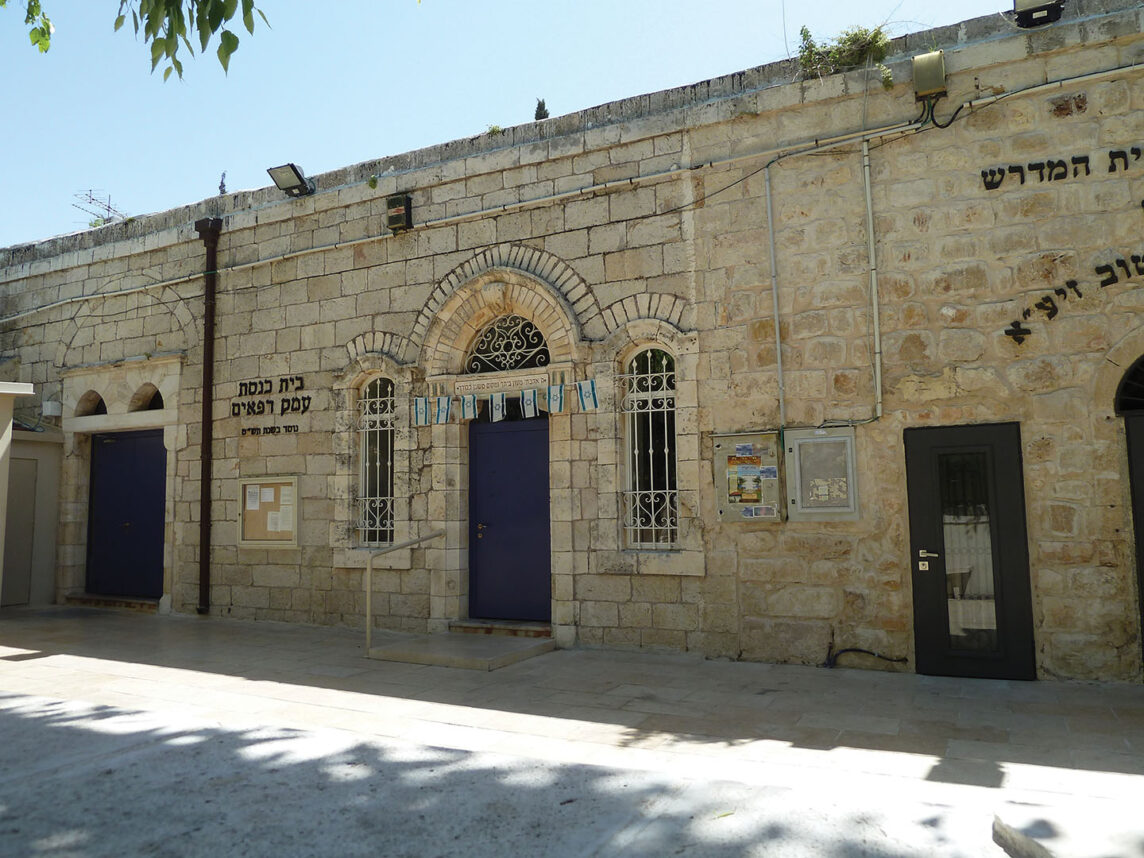
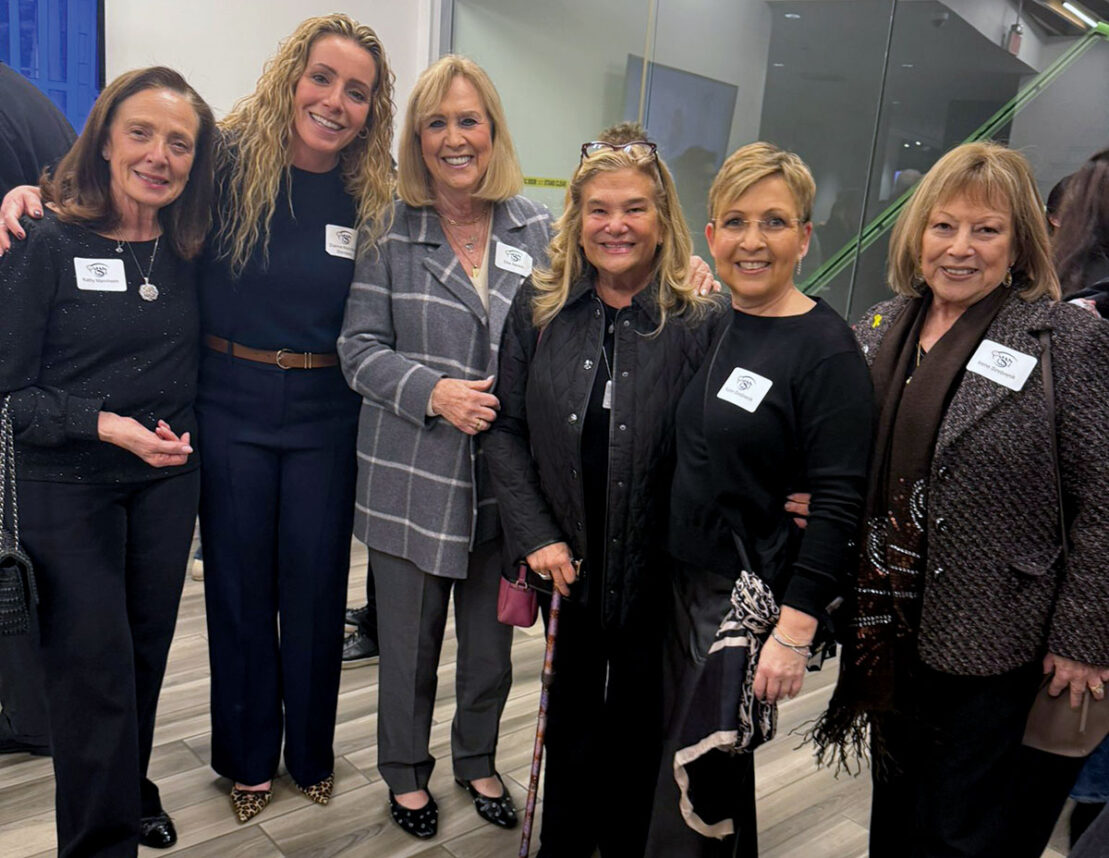

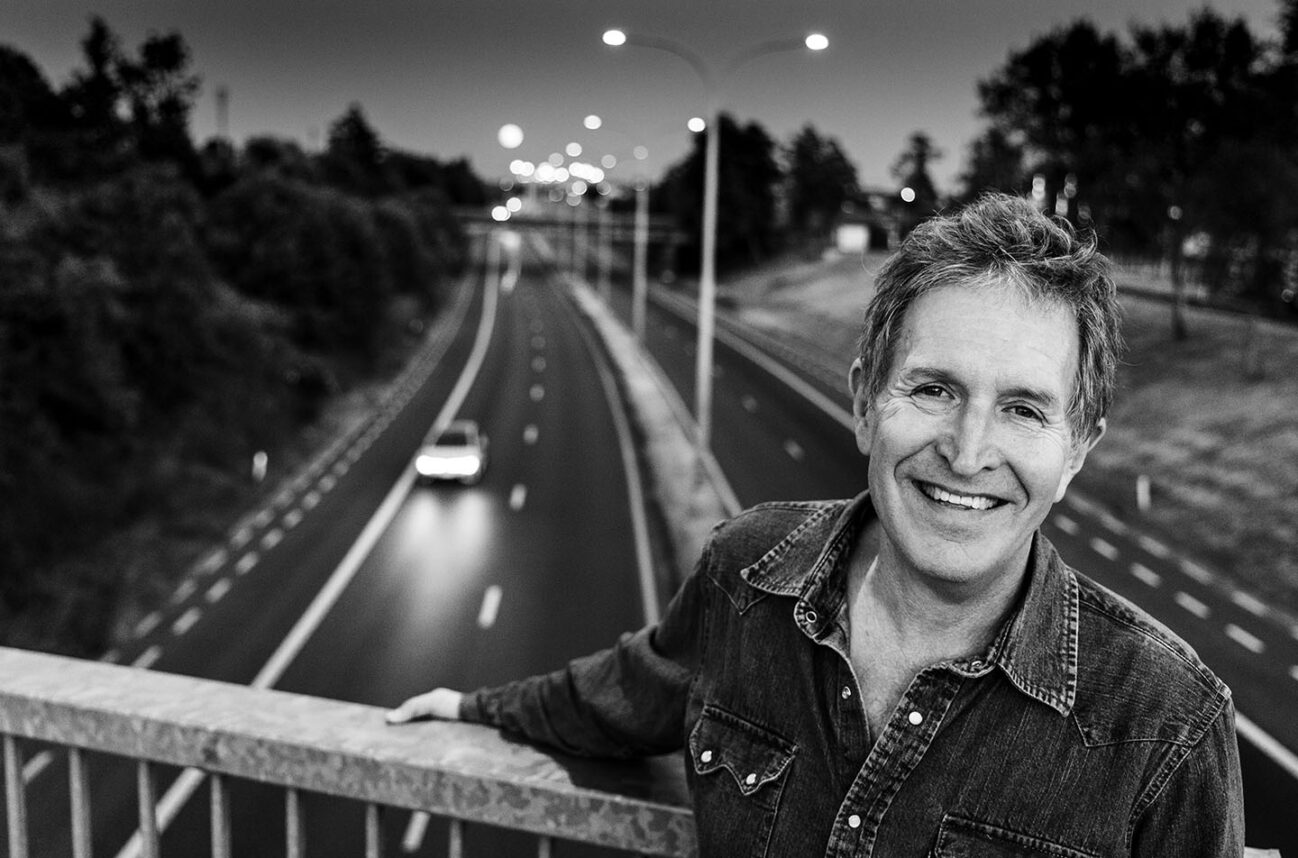
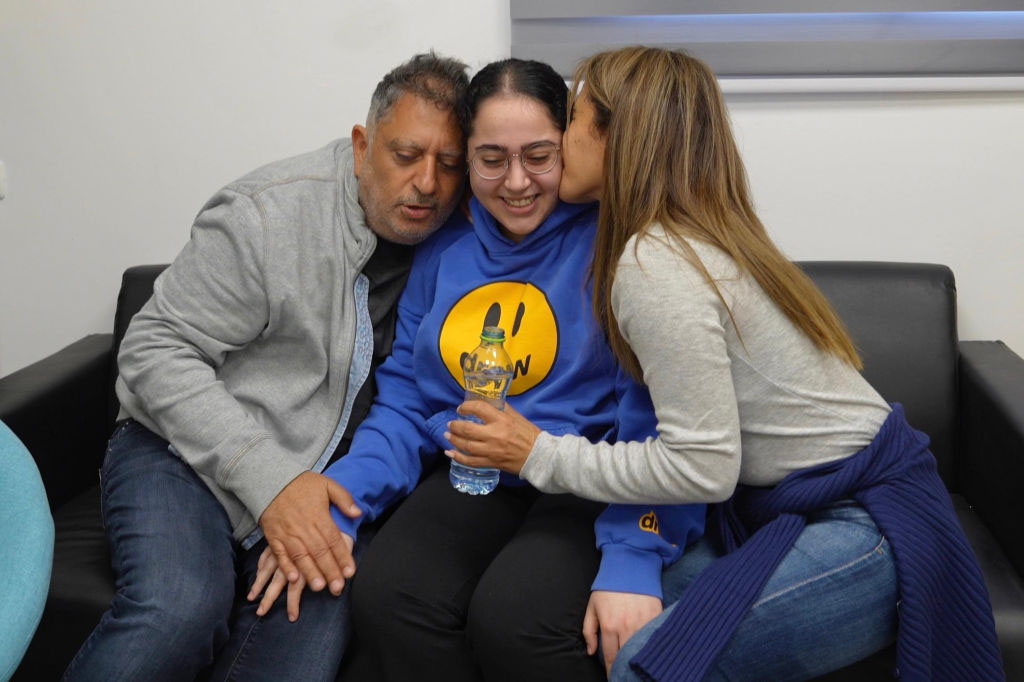
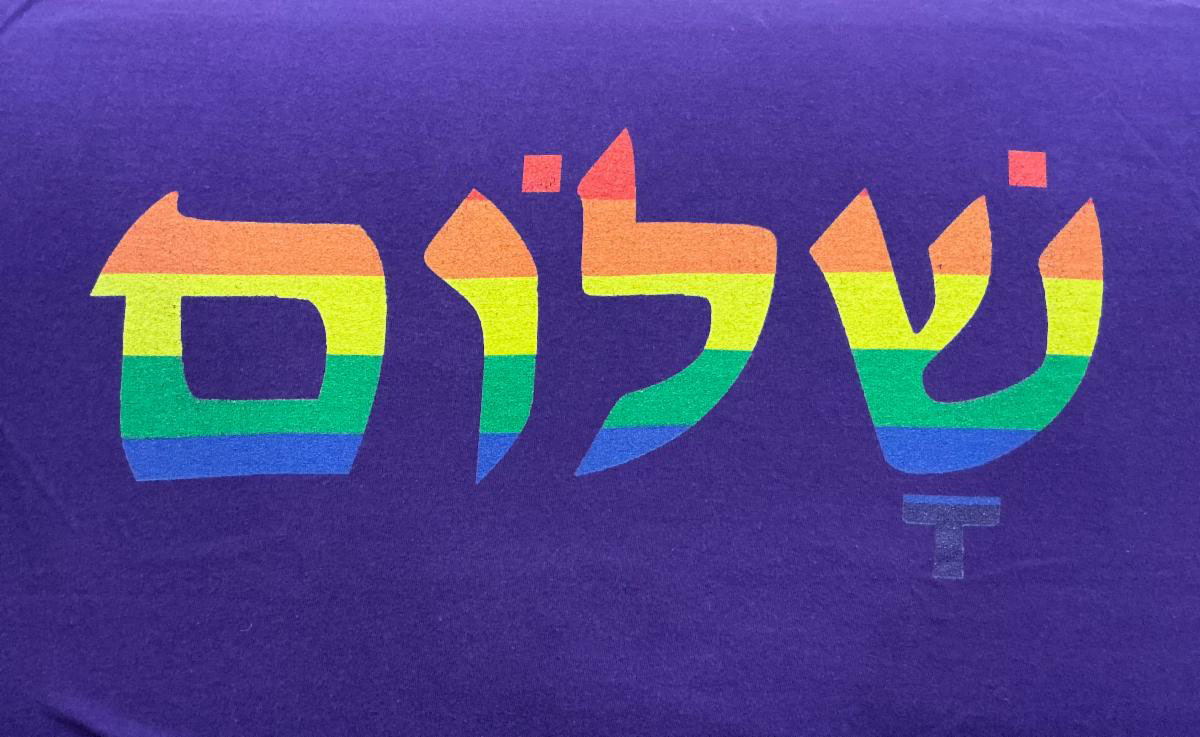
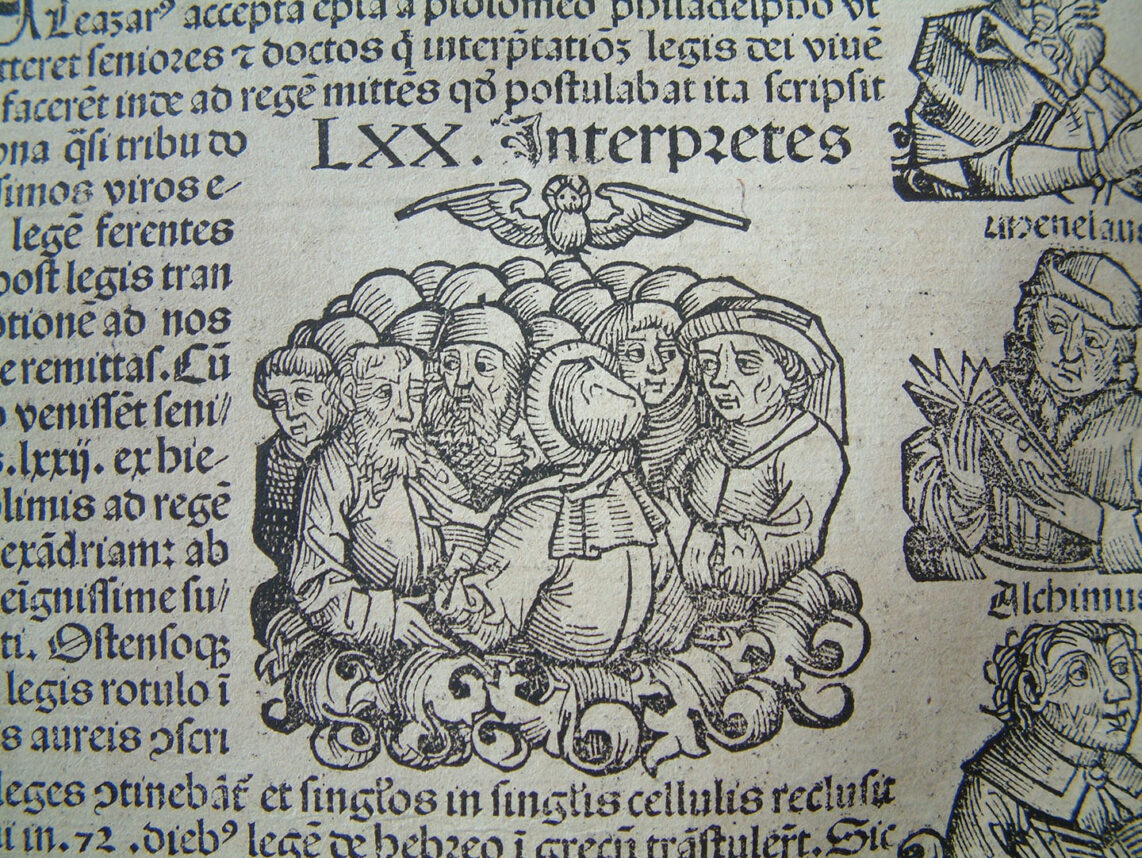
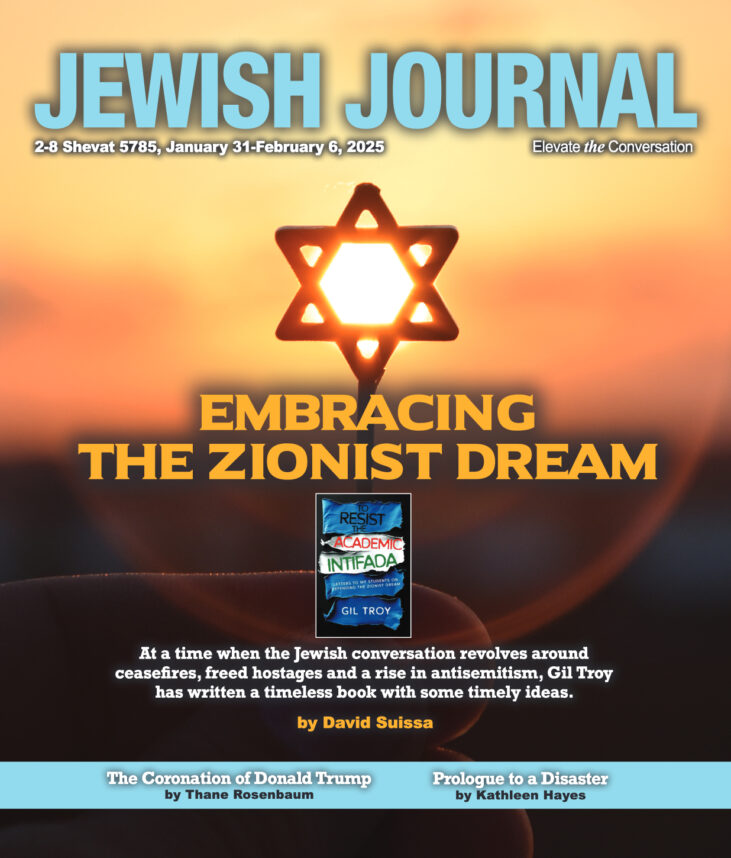
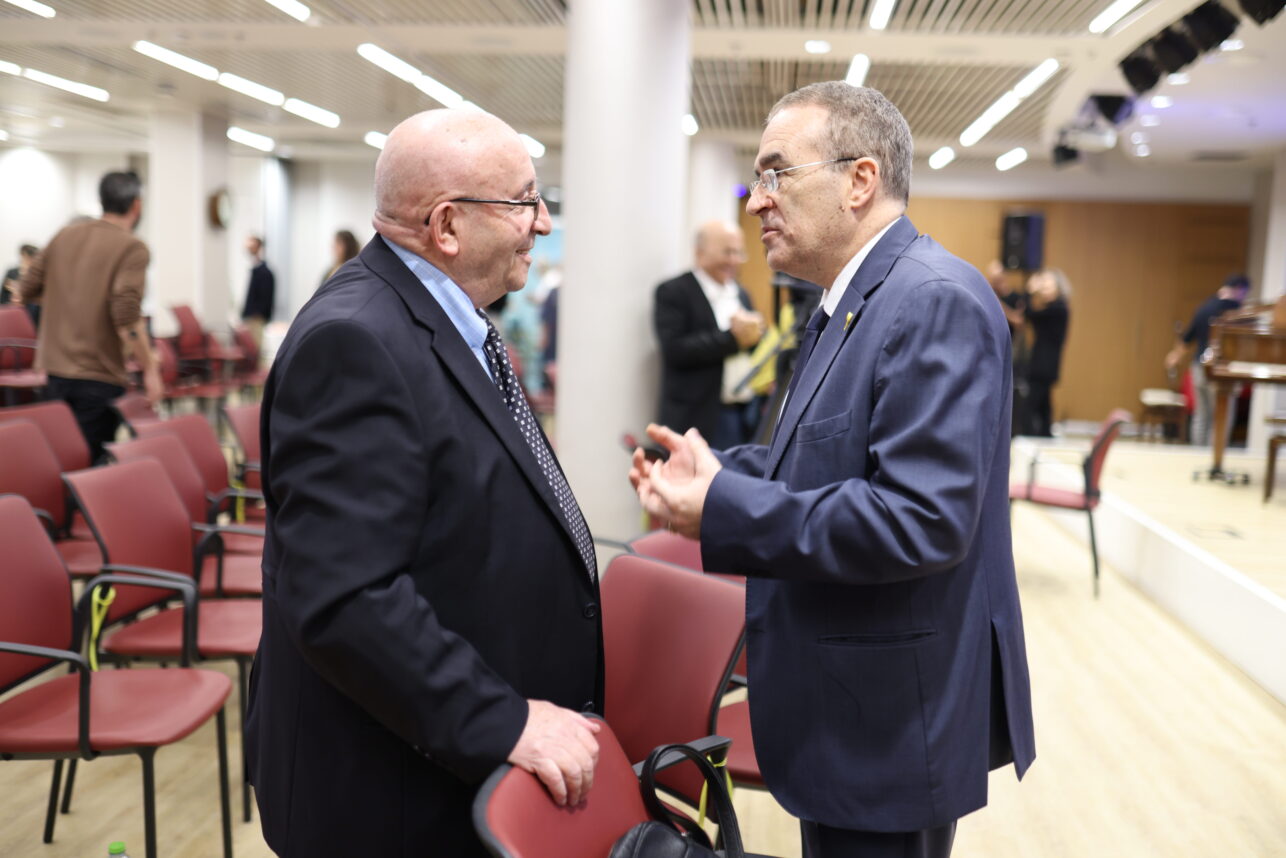
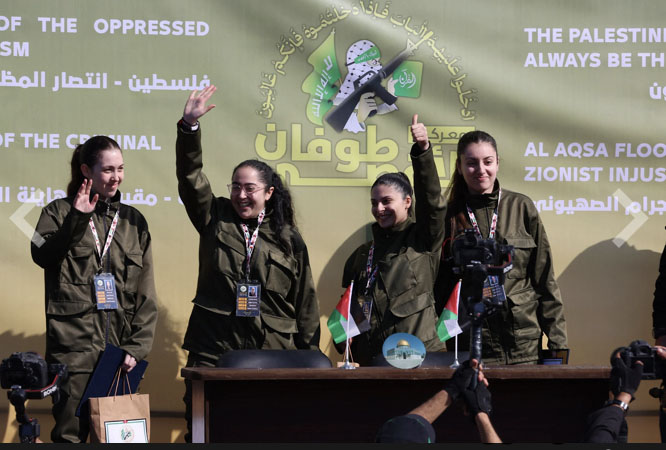



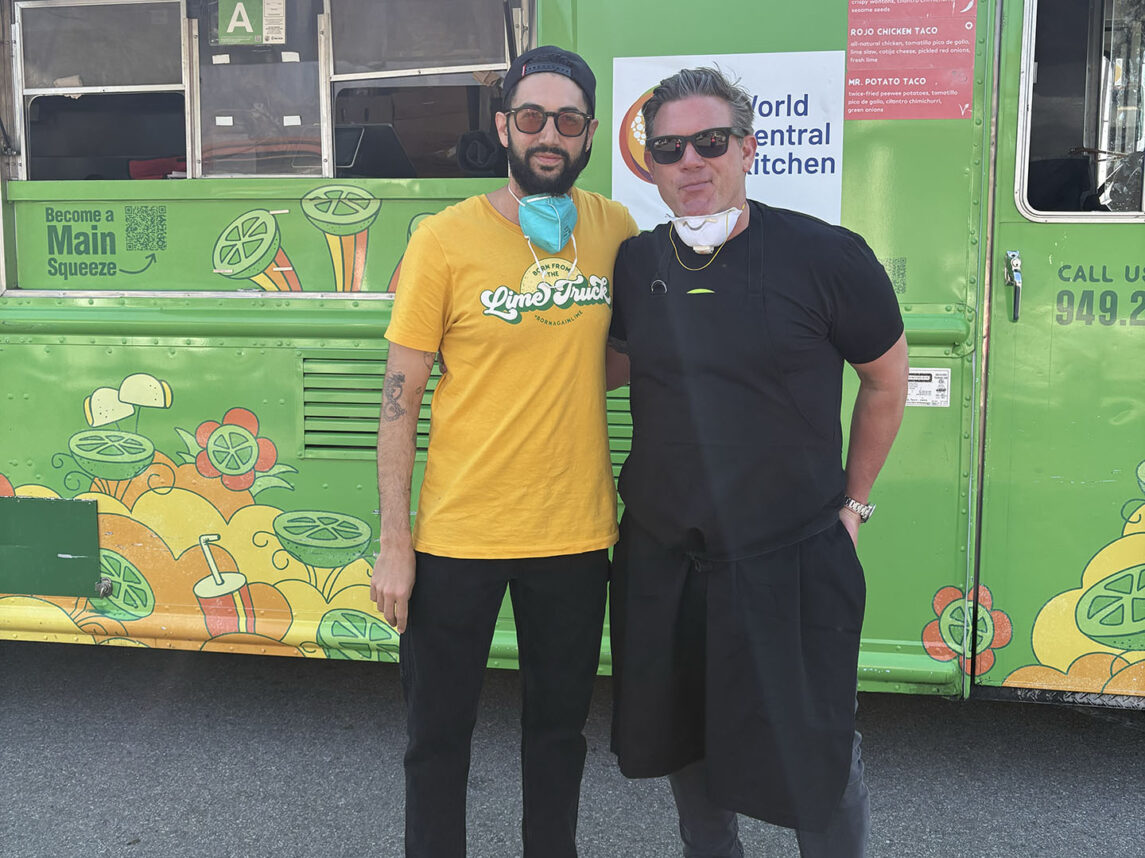


 More news and opinions than at a Shabbat dinner, right in your inbox.
More news and opinions than at a Shabbat dinner, right in your inbox.